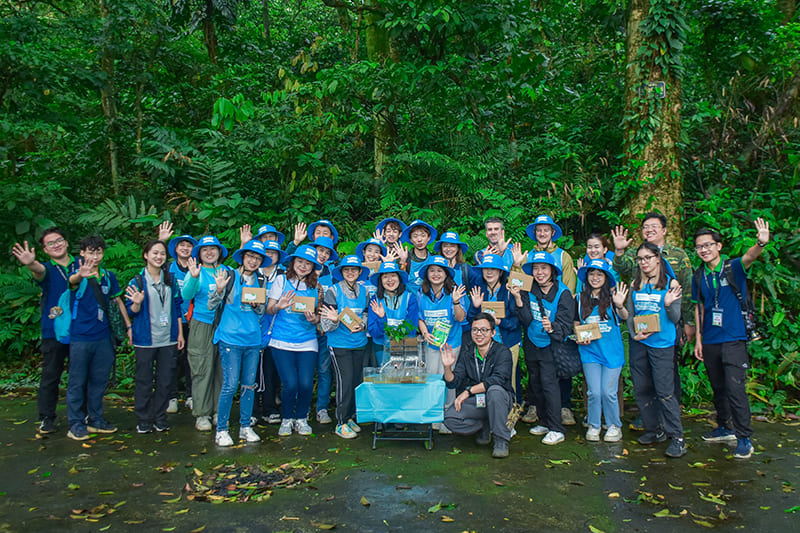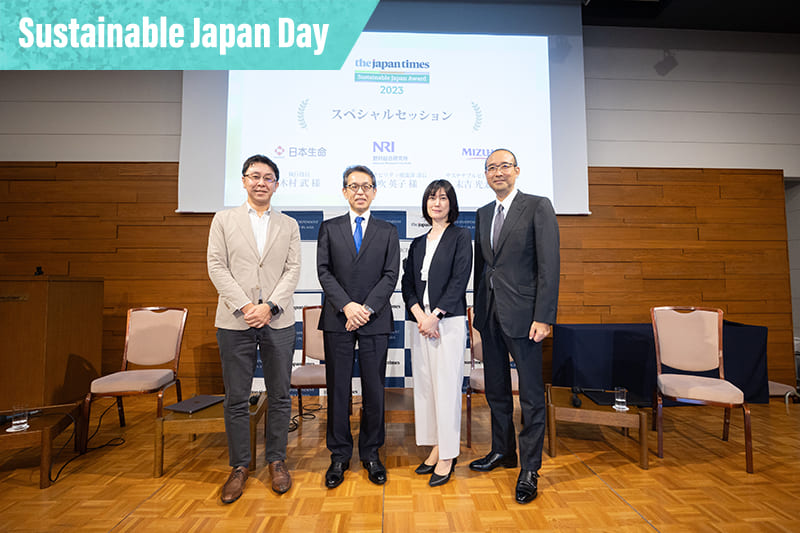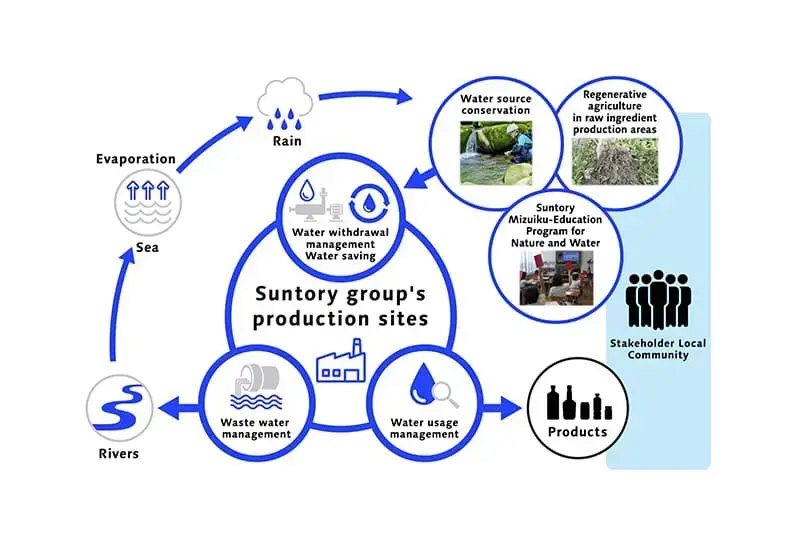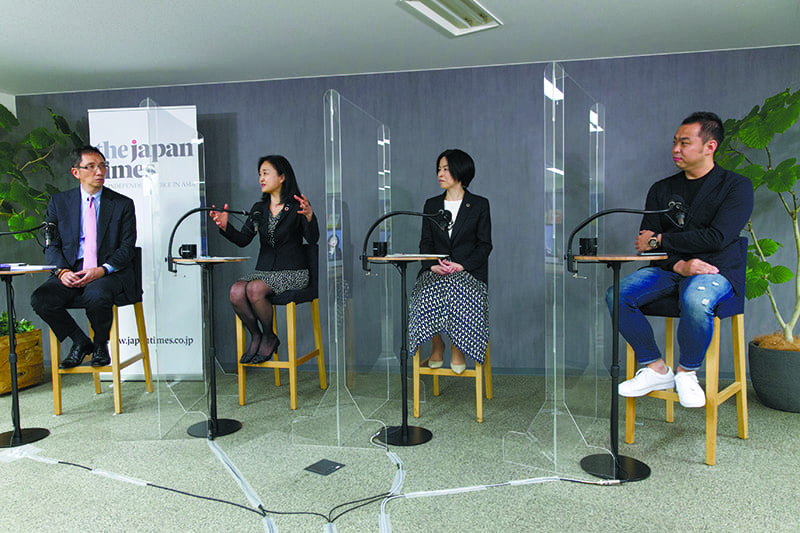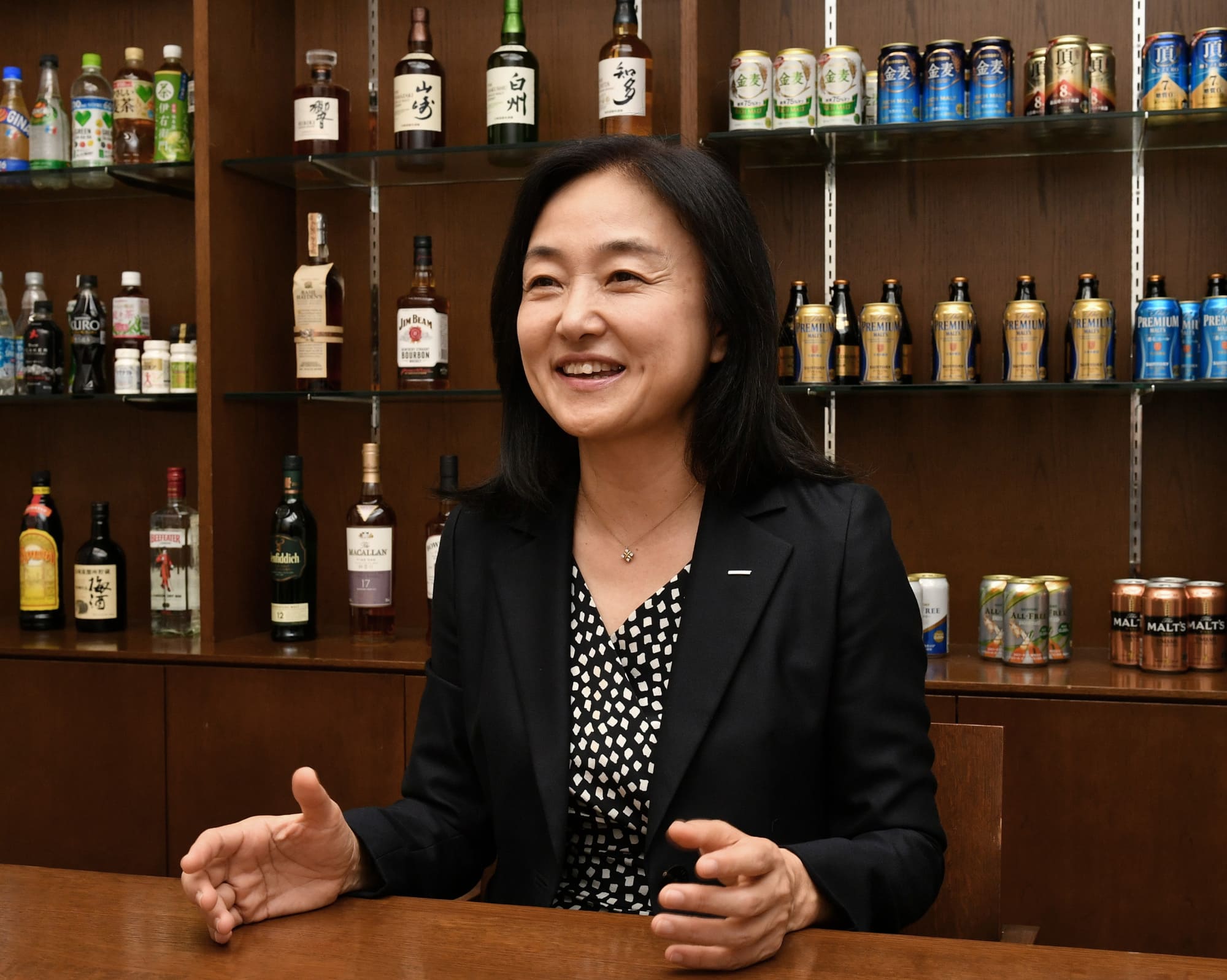November 02, 2020
ESG awards recognize efforts of Suntory, Fuji Oil
Environmental, social and governance (ESG) factors are attracting ever more attention from all stakeholders, from investors to consumers, as some of the most important keys for assessing corporate values, especially in the wake of the coronavirus outbreak.
It’s not just that companies increasingly are realizing they have a better chance of surviving tough times if they manage long-term risk with strategies for sustainability. “Consumers’ awareness is changing in these difficult times, when what was once normal is not normal anymore. They are starting to think about what they most value, which will make companies need to do more,” said Suntory Holdings Ltd. Chief Operating Officer of the Corporate Sustainability Division Tomomi Fukumoto in an online talk session organized by the Japan Times ESG Consortium on Oct. 1.
Suntory, a Japan-based global beverage producer, won the Excellence Award in the ESG category of the Japan Times Satoyama and ESG Awards 2020. The Grand Prize winner was Fuji Oil Holdings Inc., which develops and makes food products such as vegetable oils, industrial chocolates and soy-based ingredients. The chief ESG officer of the company, Takashi Kadota, also joined the talk session, which was moderated by Michiyo Morisawa, the Japan head of the Principles for Responsible Investment network and director of CDP (formerly the Carbon Disclosure Project) Japan.
Both companies have always regarded contributing to society as an indispensable part of business. Fuji Oil upholds “work for people” as one of its values, and Suntory “giving back to society.” This is exactly the kind of mentality necessary for a deep commitment — not mere show — to ESG principles and is what makes these companies exemplars of a corporate philosophy that incorporates successful ESG policies.
The companies’ ESG-aware strategies are designed to address a wide range of challenges in their value chains, from emissions reduction and responsible procurement to the environment and human rights. These are also in line with the United Nations’ Sustainable Development Goals.
Reducing climate change

Fuji Oil, established in 1950, places sustainability at the core of its business. “Business that lacks social value is not sustainable,” Kadota said. Among the 17 U.N. goals, Kadota explained, Fuji Oil considers climate change as one of the most urgent issues. “An integrated system of reducing emissions and capturing emitted carbon dioxide is necessary,” he said, mentioning that the company engages not only in emissions-reducing activities such as developing renewable energy but also in the prevention of deforestation.
Suntory is also taking on a big challenge to launch its first zero-emissions factory in Nagano Prefecture in 2021. “The factory will be using renewable energy sources in the region such as biomass,” Fukumoto said.
Morisawa, who also serves as chairwoman of the Japan Times ESG Consortium, commented that the creation of small electric power plants that use local renewable energy sources is technologically possible these days. “I hope that there will be more collaborations between companies and municipalities in this field,” she said.
Water sustainability
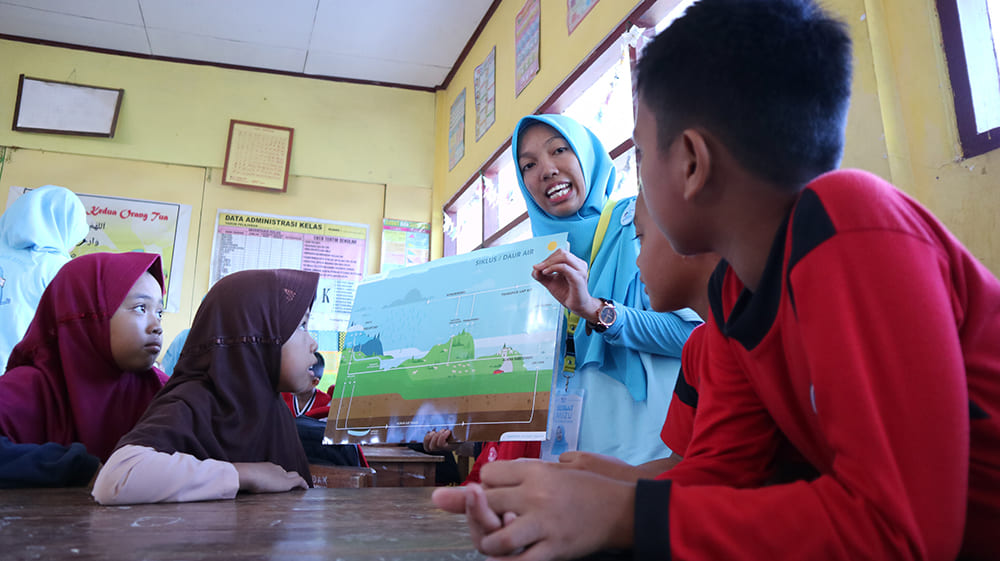
Water sustainability, part of the Sustainable Development Goals, is the most important element for Suntory from the perspective of its sustainable growth. “Out of the Suntory Group’s seven sustainability themes we stipulated last year, water comes first,” said Fukumoto, saying the resource needs to be preserved and husbanded for future generations. Suntory has been engaging in Natural Water Sanctuary cultivation activities since 2003 to create and maintain forests that produce mineral-rich water. It has also been providing water education programs to children since 2004.
Another of the seven themes, Containers and packaging, also overlaps with some of the Sustainable Development Goals, such as Life Below Water and Responsible Consumption and Production. Fukumoto said, “We aim to replacing all virgin materials used in our PET bottles with recycled or plant-derived materials by 2030.”
Fuji Oil is also highly aware of how the raw materials it procures, such as palm oil, cacao beans and soybeans, are grown. Kadota acknowledged that areas producing these materials in Southeast Asia, Africa and other regions have had environmental and social problems. “But palm oil, for example, is inexpensive compared to other vegetable oils. It is an important food ingredient, especially in poor nations, and we feel responsible for its stable supply,” he said.
Raising workers’ awareness
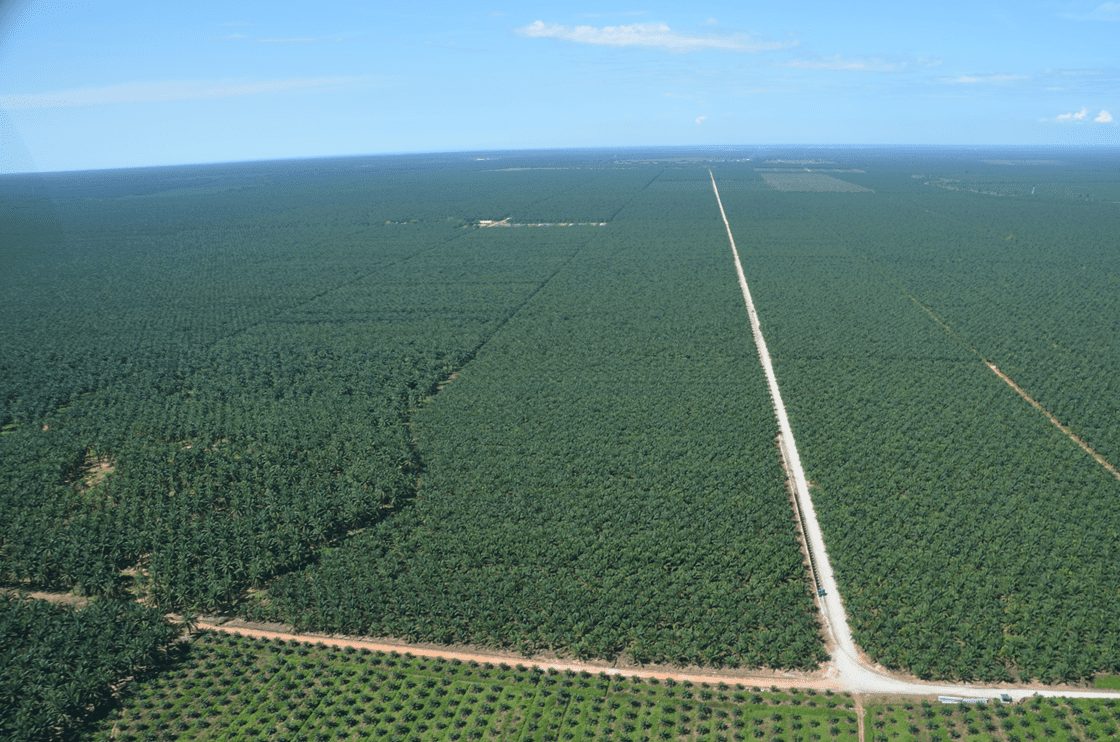
Fuji Oil tries to continue procuring these materials while solving the problems faced during the production process. “Some of our efforts include making palm tree plantation owners return passports to more than 200 migrant workers, to not allow forced labor, and suspending business with suppliers whose production processes are causing deforestation,” Kadota said. The company is also committed to putting an end to child labor and to improving the living conditions of workers throughout its supply chain.
To accelerate efforts to achieve Sustainable Development Goals through the companies’ ESG management, Fuji Oil and Suntory are striving to raise workers’ awareness about why such efforts are needed and how they will contribute to the businesses’ own sustainability and are enhancing communications with various stakeholders.
More than half of the workers in the Fuji Oil group are non-Japanese. As a company that considers diversity to be important for both itself and society, Fuji Oil appoints local workers to managerial positions in many of its overseas entities. “Each country has its own culture, trends, business methods, social issues and special needs for food. It makes more sense to entrust speedy decision-making to local employees,” Kadota said. He himself talks directly to locally hired workers to listen to their ideas and worries, and to explain the need for a collective ESG effort by the entire group.
Suntory, in addition to various programs to develop human resources, offers an internal award program to recognize employees who take on new business challenges using fresh ideas and creating new values. “Last year, about 450 teams, consisting of about 4,500 workers from around the world, applied for the award. Sustainability is an important factor in evaluation,” Fukumoto said. She also explained that roughly 7,000 workers in Japan have had hands-on experience in forest development as part of the company’s Natural Water Sanctuary activities designed to nurture forests.
In order to closely communicate with stakeholders, both companies publish financial and nonfinancial information such as integrated reports and sustainability reports, make their websites available in multiple languages, offer environmental education programs to children and take various other measures.
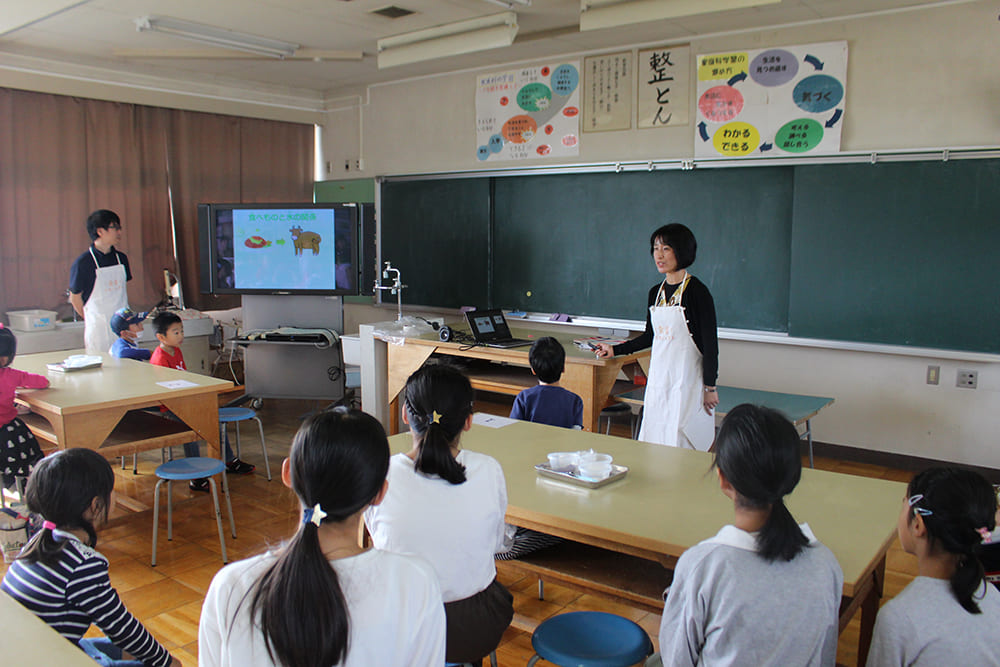
Fukumoto pointed out that Japanese enterprises tend to be too modest about their efforts and achievements. “Even if we have done something good, if we don’t try to propagate it widely, it is the same as having done nothing at all,” she said. She also stressed the importance of not only reaching out to various stakeholders but also involving them in the company’s sustainability efforts.
Morisawa commented that from investors’ point of view, accurate corporate evaluations that lead to long-term profit are based on both financial and ESG information about companies.

